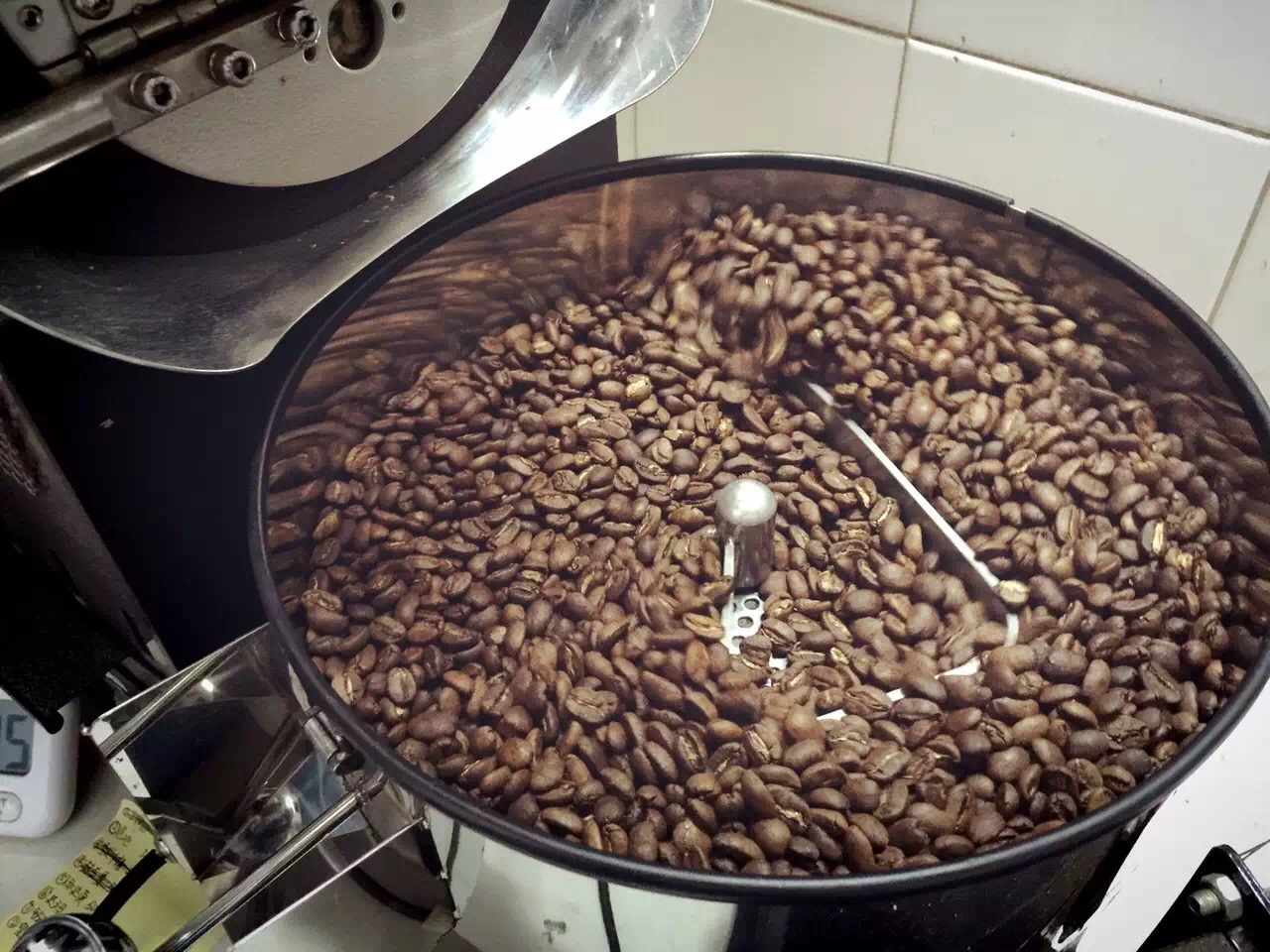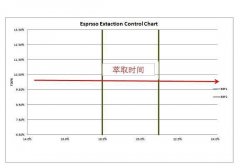About the degree of grinding: the degree of grinding affects the extraction rate and boiling time.

I. the relationship between grinding thickness and extraction time
The finer the coffee is, the denser the powder layer is, there are more coffee powder particles in contact with hot water, the extraction resistance increases, it is easier to prolong the extraction time, and increase the extraction rate, so it is easy to over-extraction.
On the contrary, the thicker the touch is, the larger the gap in the powder layer is, the less coffee powder is in contact with water, the weaker the extraction resistance, the lower the extraction time and the extraction rate, so it is easy to lack of extraction.
Therefore, the veteran will control the extraction time according to the size of the powder. If the powder is fine, the extraction time will be slightly shortened. If it is coarse, the extraction time will be slightly prolonged.
Second, deep baked beans are slightly thicker and shallow baked beans are slightly thinner.
In addition, before determining the grinding degree of coffee beans, the veteran will first judge the color and oil production of cooked beans, the lighter the roast, the less easy to extract, then use a little fine grinding. The deeper the baking is, the easier it is to extract, so slightly rough grinding is used.
Therefore, the depth is thick and shallow. (however, it should not be too coarse or too fine, which will cause abnormal extraction and affect the flavor of coffee)
3. The grinding degrees of all kinds of bubble cooking methods from coarse to fine are as follows:
French filter press (thick)
Electric trickling filter pot (medium and thick)
Hand flushing pot, siphon pot, desktop smart filter cup (moderate)
Mocha pot (medium and fine)
Espresso (fine)
Turkish coffee (very fine)
1. The amount of extracted material is not due to the resistance caused by the size of the gap in the powder layer. If it is really because the rough grinding resistance is small, then do Italian, compared with light pressure and fine grinding, with rough grinding and heavy pressure, why can the consistent flow rate be achieved? Don't simply assume that the pressing powder can resist the pressure of 9 bar. If it is really possible to use the powder force to resist the pressure of 9 bar, think about the speed of the rough mill.
For the difference in flavor between fine grinding and rough grinding, you can refer to the view that coffee extraction only extracts the surface of powder balls mentioned by Dr.illy and some coffee masters.
2. The soluble substance extracted is related to the thickness, but the extraction rate is not absolutely equivalent to this. Otherwise, why would many competitors increase the amount of powder to reduce the extraction rate through relatively fine grinding force and slightly fine grinding?
As for the relationship between extraction rate and concentration, it is recommended to look at the relevant articles, such as Zhe's.
Important Notice :
前街咖啡 FrontStreet Coffee has moved to new addredd:
FrontStreet Coffee Address: 315,Donghua East Road,GuangZhou
Tel:020 38364473
- Prev

How does the temperature of the water used to brew coffee affect the flavor of coffee?
Netizens asked: the water used to extract coffee, how does the water temperature too high or too low affect the flavor of coffee? Once tried to taste a coffee, coffee is newly opened, freshness can be guaranteed, but somehow the aroma, mellow, acidity can hardly be felt, the initial guess is the reason why the water temperature is too high, but can not be sure, about the effect of water temperature on coffee flavor, want to know
- Next

The thinking mode of extraction 2b-extraction time is transferred from Douban
Continuing with the previous article, http://www.douban.com/note/244706236/ extraction time looks easy, but it's actually a little more complicated than I thought. Because although the extraction time is directly related to the relationship between extraction rate and concentration, their relationship is not necessarily proportional. We still return to the original two purposes, get the reasonable extraction rate and get the proper concentration.
Related
- Detailed explanation of Jadeite planting Land in Panamanian Jadeite Manor introduction to the grading system of Jadeite competitive bidding, Red bid, Green bid and Rose Summer
- Story of Coffee planting in Brenka region of Costa Rica Stonehenge Manor anaerobic heavy honey treatment of flavor mouth
- What's on the barrel of Blue Mountain Coffee beans?
- Can American coffee also pull flowers? How to use hot American style to pull out a good-looking pattern?
- Can you make a cold extract with coffee beans? What is the right proportion for cold-extracted coffee formula?
- Indonesian PWN Gold Mandrine Coffee Origin Features Flavor How to Chong? Mandolin coffee is American.
- A brief introduction to the flavor characteristics of Brazilian yellow bourbon coffee beans
- What is the effect of different water quality on the flavor of cold-extracted coffee? What kind of water is best for brewing coffee?
- Why do you think of Rose Summer whenever you mention Panamanian coffee?
- Introduction to the characteristics of authentic blue mountain coffee bean producing areas? What is the CIB Coffee Authority in Jamaica?

